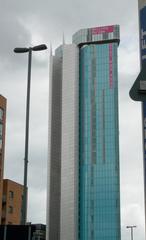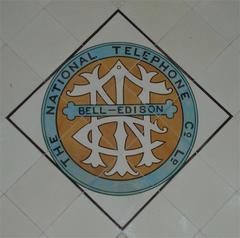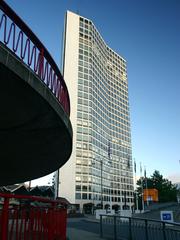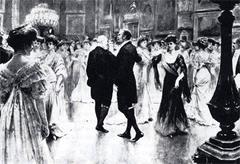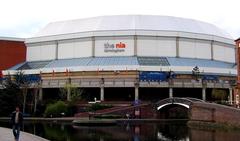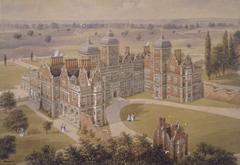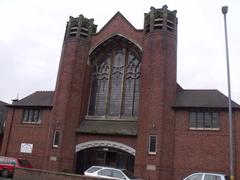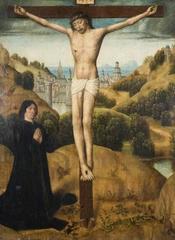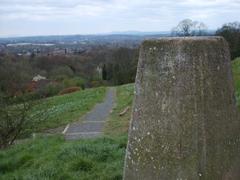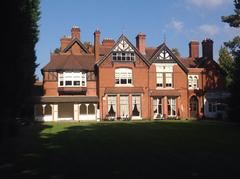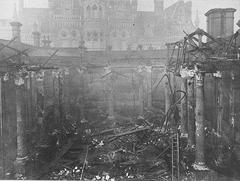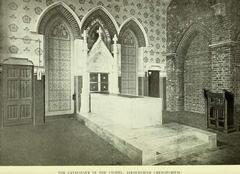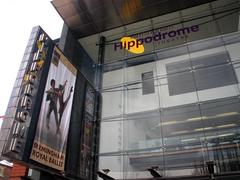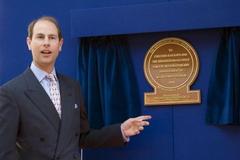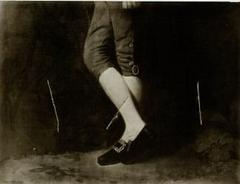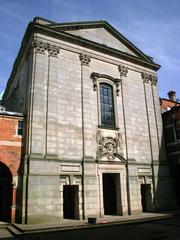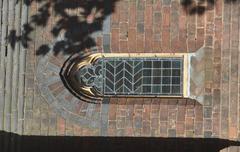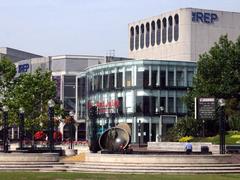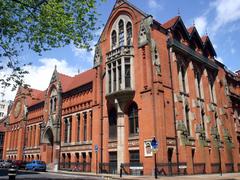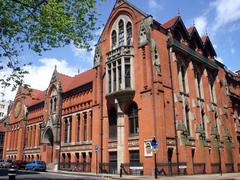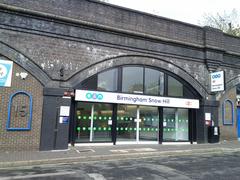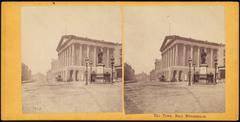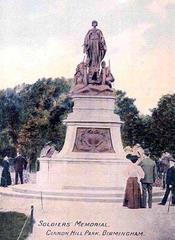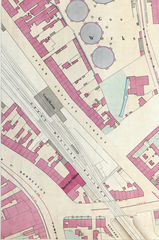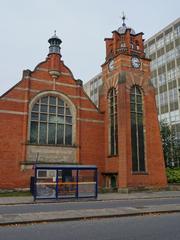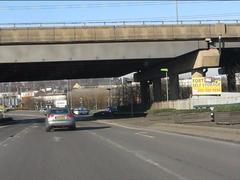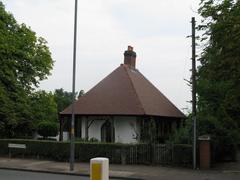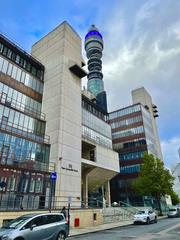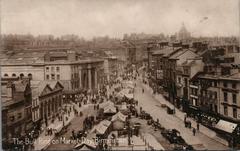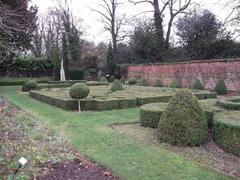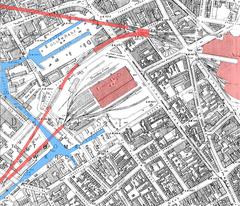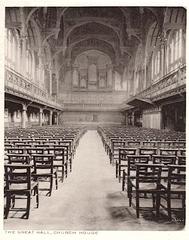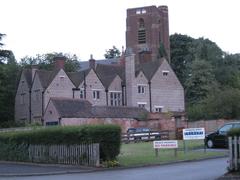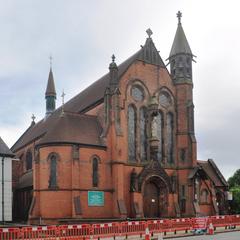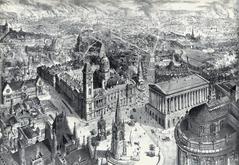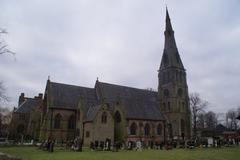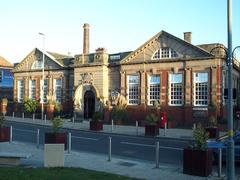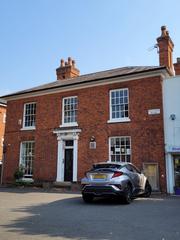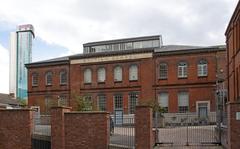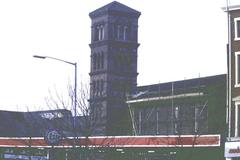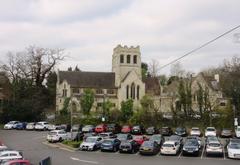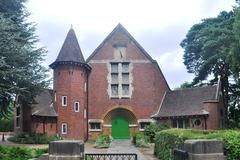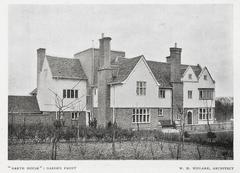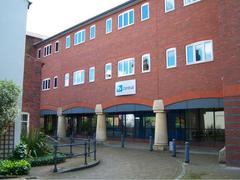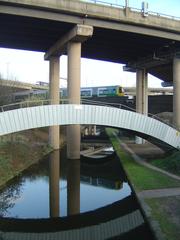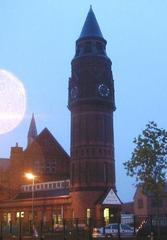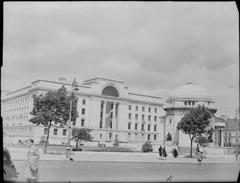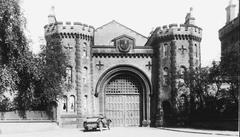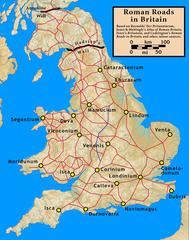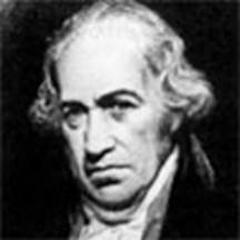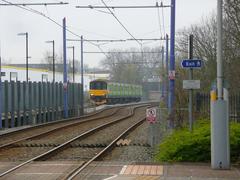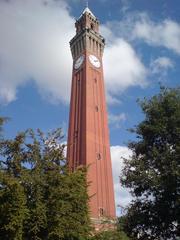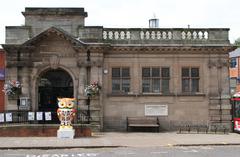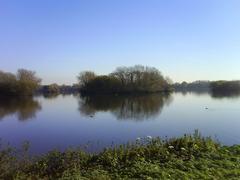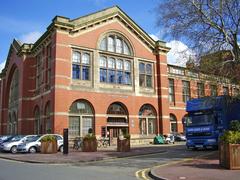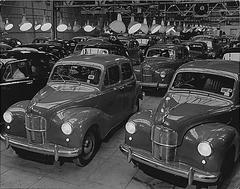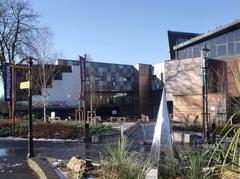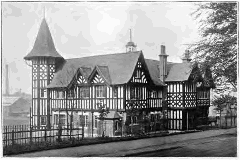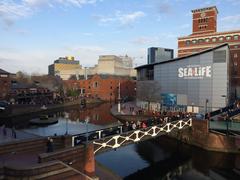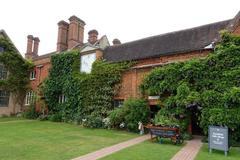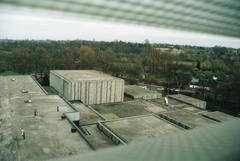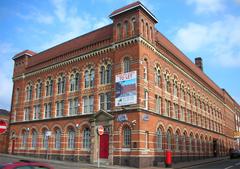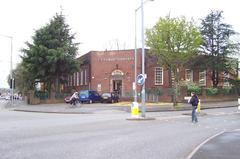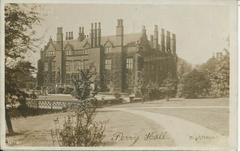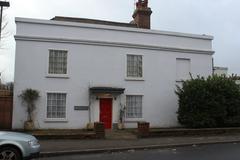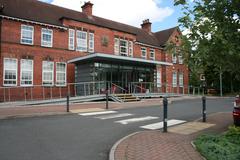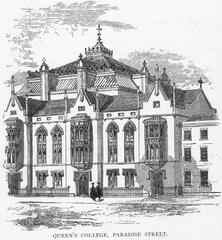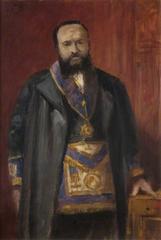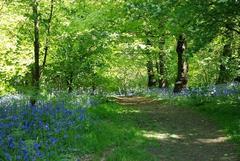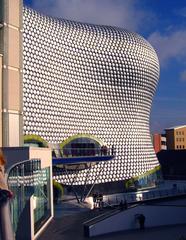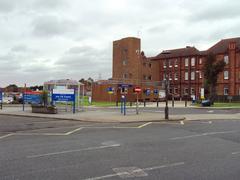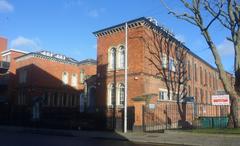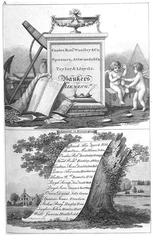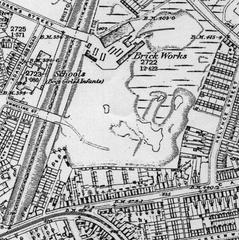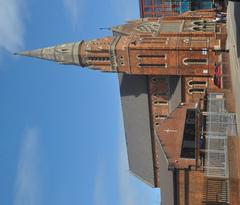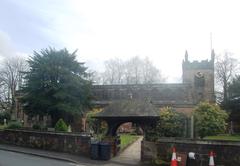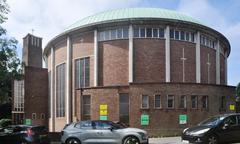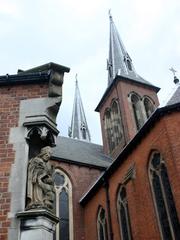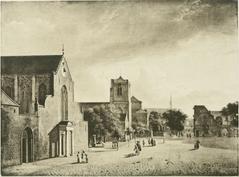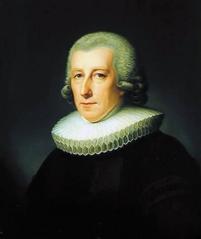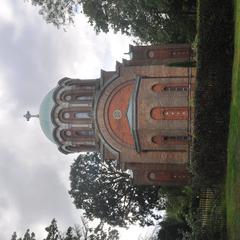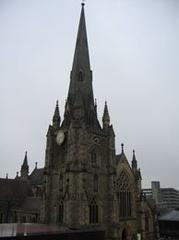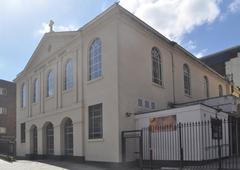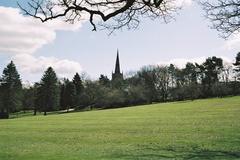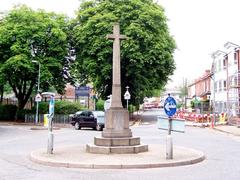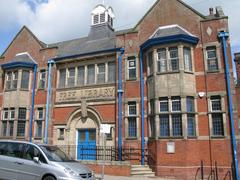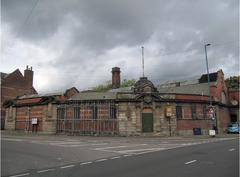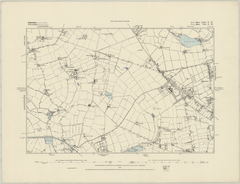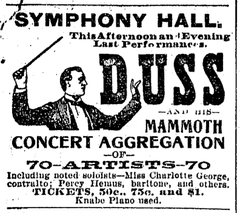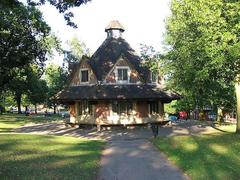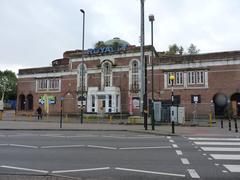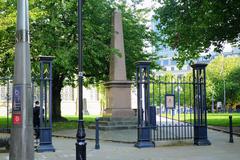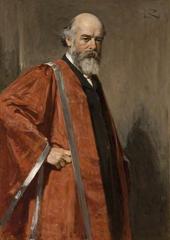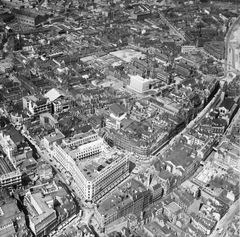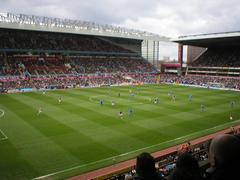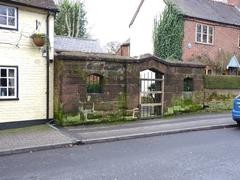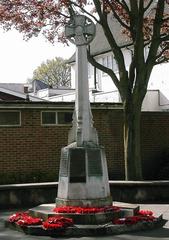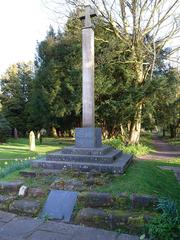Darul Barakaat Mosque Birmingham: Visiting Hours, Tickets, and Visitor Guide
Date: 15/06/2025
Introduction
Darul Barakaat Mosque, nestled in Birmingham’s vibrant Bordesley district, is a beacon of faith, culture, and community for the Ahmadiyya Muslim population and visitors alike. Since its inauguration in 2004, the mosque has served as both a spiritual sanctuary and the regional headquarters for the Ahmadiyya Muslim Community in the Midlands. Its very name—“Darul Barakaat,” meaning “Abode of Blessings”—encapsulates its mission to foster spiritual enrichment, education, and social welfare in one of the UK’s most diverse cities (Ahmadiyya Muslim Community UK).
The mosque’s establishment is linked to the growth of the Ahmadiyya movement, founded in India in 1889 by Mirza Ghulam Ahmad and introduced to the UK in 1913 with the Fazl Mosque in London. Birmingham’s multicultural landscape made it a prime location for a purpose-built mosque reflecting both Islamic and contemporary British architectural influences (Birmingham City Council).
Today, Darul Barakaat offers free entry, flexible visiting hours, full accessibility, and guided tours, making it a gateway for locals and tourists to explore Birmingham’s religious and cultural tapestry. The mosque is also a hub for interfaith dialogue, education, and charitable initiatives, exemplifying the Ahmadiyya ethos of “Love for All, Hatred for None” (Love for All, Hatred for None).
Contents
- Origins and Foundation
- Construction and Inauguration
- Architectural Features and Capacity
- Historical Context and Site Transformation
- Role in the Ahmadiyya Muslim Community
- Community Impact and Outreach
- Historical Significance in Birmingham
- Notable Events and Milestones
- Preservation and Future Developments
- Visitor Information
- Visiting Hours
- Accessibility
- Travel Tips
- Visitor Etiquette and Guidelines
- Guided Tours
- Photography Policy
- Nearby Attractions
- Frequently Asked Questions (FAQ)
- Visuals and Interactive Resources
- Related Birmingham Historical Sites
- Call to Action
Origins and Foundation
The Darul Barakaat Mosque stands as a testament to the growth and integration of the Ahmadiyya Muslim Community in the UK. The community, established in 1889 in India, began its UK presence in 1913. With Birmingham’s expanding and diverse Muslim population, demand grew for a dedicated Ahmadiyya mosque. Prior to Darul Barakaat, members relied on smaller, rented spaces. Through collective fundraising and organizational efforts, the community realized its vision of a purpose-built mosque and regional center (Ahmadiyya Muslim Community UK).
Construction and Inauguration
Construction commenced in the early 2000s, funded entirely by local and international Ahmadiyya donations. The mosque was designed for inclusivity and accessibility, with active community participation. On July 11, 2004, Hazrat Mirza Masroor Ahmad, the fifth Caliph of the Ahmadiyya Muslim Community, officially inaugurated the mosque. The event saw attendance from dignitaries, faith leaders, and the public, underscoring the mosque’s role as a bridge between communities (Ahmadiyya Muslim Community UK).
Architectural Features and Capacity
Darul Barakaat beautifully blends traditional Islamic and modern British architecture. The mosque features a striking dome, elegant minarets, and façades adorned with Islamic geometric patterns. The main prayer hall accommodates up to 1,000 worshippers, with additional space in adjoining halls during major events, and separate facilities for men and women (Ahmadiyyat Mosques UK; Wikipedia). Supporting facilities include classrooms, meeting rooms, a multipurpose hall, and accessible ablution areas.
Key features:
- Grand dome and minaret-like towers
- Spacious, naturally lit prayer halls
- Multipurpose spaces for education and community use
- Ramps, wide doors, and accessible restrooms for inclusivity
- Guest accommodation for visiting scholars (CityMaps UK)
Historical Context and Site Transformation
The mosque is built on a site formerly occupied by a girls’ primary school, established in 1889 and closed in the 1970s. Purchased for £200 in 1996, the site was transformed into Darul Barakaat Mosque at a cost of £1.5 million, funded by community donations. The mosque’s architecture pays homage to the site’s history as a place of learning (Wikipedia).
Role in the Ahmadiyya Muslim Community
Darul Barakaat serves as the Midlands’ regional headquarters for the Ahmadiyya Muslim Community. It is the focal point for daily prayers, Friday services, and special events during Ramadan and Eid. The mosque provides religious education, Arabic classes, and moral development programs for children and adults. Its leadership engages in interfaith dialogue and civic outreach, reinforcing the community’s principles (Ahmadiyya Muslim Community UK).
Community Impact and Outreach
The mosque is a center for charitable activities and social service, regularly organizing blood donation drives, food banks, and fundraising events. During crises like the COVID-19 pandemic, the mosque supported vulnerable locals with essential supplies. Annual events like the Peace Symposium bring together faith leaders and residents to discuss peace, justice, and harmony, strengthening civic engagement (Ahmadiyya Muslim Community UK).
Historical Significance in Birmingham
Darul Barakaat is a prominent symbol of Birmingham’s multiculturalism and the Muslim community’s contributions to the city. Its establishment coincided with increasing recognition of religious diversity and played a part in fostering positive perceptions of Islam in the UK. The mosque’s history reflects the broader narrative of Muslim migration and integration in post-war Birmingham (Birmingham City Council).
Notable Events and Milestones
Key milestones include the 2004 inauguration by Hazrat Mirza Masroor Ahmad and the mosque’s 10th anniversary in 2014, marked by community events and recognition for interfaith and social welfare efforts. The mosque has also hosted visits from MPs, police officials, and faith representatives, fostering dialogue and understanding.
Preservation and Future Developments
Darul Barakaat continues to evolve, with ongoing upgrades to ensure safety, accessibility, and sustainability. Future plans include expanding educational programs, enhancing youth and women’s facilities, and implementing environmental initiatives. These efforts align with the community’s commitment to serving humanity and protecting the environment (Ahmadiyya Muslim Community UK).
Visitor Information
Visiting Hours and Tickets
- Weekdays: 9:00 AM – 6:00 PM
- Weekends: 10:00 AM – 4:00 PM
- Ramadan and Holidays: Hours may vary (check ahead)
- Entry: Free, no tickets required
Accessibility
- Ramps, wide entrances, and accessible restrooms
- Wheelchair friendly throughout the premises
Travel Tips
- Address: 277-279 Washwood Heath Road, Birmingham, B8 2AS, UK
- Public Transport: Accessible by bus routes 14, 19, and from Birmingham New Street Station (Rome2Rio)
- Parking: Limited on-site parking; public transport recommended
Visitor Etiquette and Guidelines
- Dress Code: Modest attire; women should cover hair (scarves provided)
- Shoes: Remove before entering prayer hall
- Silence: Maintain a respectful atmosphere
- Photography: Permitted in designated areas with permission; avoid during prayers
Guided Tours
- Available upon request; contact mosque administration or via the official website
Nearby Attractions
- Birmingham Jewellery Quarter
- Digbeth cultural district
- Birmingham Museum & Art Gallery
- Aston Hall
Frequently Asked Questions (FAQ)
Q: What are the mosque’s visiting hours?
A: Generally 9:00 AM – 6:00 PM weekdays, 10:00 AM – 4:00 PM weekends. Check the official site for special timings.
Q: Is there an entry fee?
A: No, entry is free.
Q: Are guided tours available?
A: Yes, by arrangement in advance.
Q: Is the mosque wheelchair accessible?
A: Yes, fully accessible.
Q: Can non-Muslims visit and observe prayers?
A: Yes, all are welcome to visit and observe with respect.
Q: Is photography allowed?
A: Yes, but only in permitted areas and not during prayers.
Visuals and Interactive Resources
- Official Darul Barakaat Mosque gallery
- Virtual tours and high-quality images on the mosque’s website
- Descriptive alt-text for improved accessibility
Related Birmingham Historical Sites
- Birmingham historical sites guide
- Birmingham Central Mosque
- St. Philip’s Cathedral
Call to Action
Plan your visit to Darul Barakaat Mosque for a unique insight into Birmingham’s Islamic heritage. For the latest information on visiting hours, events, and guided tours, consult the official website and download the Audiala app for updates. Follow Darul Barakaat Mosque and the Ahmadiyya Muslim Community UK on social media to stay informed about community events and cultural opportunities.
Sources
- Darul Barakaat Mosque Birmingham: Visiting Hours, Historical Significance, and Visitor Information, 2025, Ahmadiyya Muslim Community UK (Ahmadiyya Muslim Community UK)
- Darul Barakaat Mosque Birmingham: Visiting Hours, Tickets & Historical Significance, 2025, Ahmadiyyat Mosques UK and Ahmadipedia (Ahmadiyyat Mosques UK)
- Darul Barakaat Mosque Visiting Hours and Cultural Significance in Birmingham, West Midlands, 2025, Wikipedia and Birmingham City Council (Birmingham City Council)
- Darul Barakaat Mosque Visiting Hours and Visitor Guide in Birmingham, 2025, Ahmadiyya Muslim Community UK (Ahmadiyya Muslim Community UK)
- Love for All, Hatred for None, 2025, Ahmadiyya Muslim Community Outreach (Love for All, Hatred for None)
- Rome2Rio - Transport to Darul Barakaat Mosque, 2025 (Rome2Rio)
